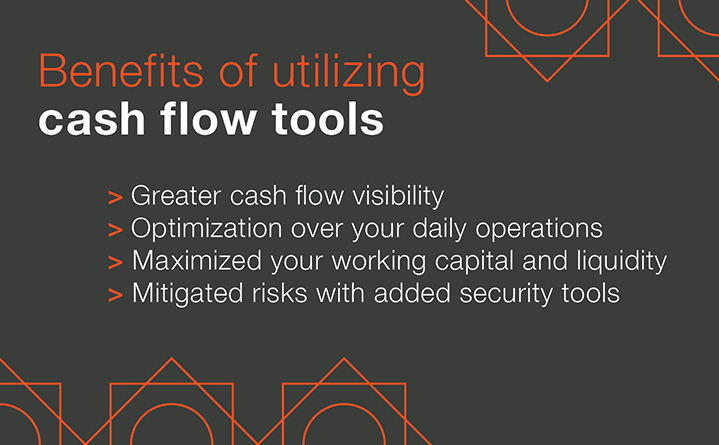What you need to know about these common cash flow problems
Monitoring and maintaining a steady cash flow is a priority for all types of business owners, especially given the reality that a lack of capital is one of the biggest hurdles entrepreneurs face.

At its core, cash flow management is a simple practice to track the net balance of cash moving into your business compared to the money you’re spending over a given period of time. But truly doing your due diligence involves going a bit deeper by considering the common cash flow problems your business could run into and having a plan to stay ahead of them.
So, what are some of the most common cash flow problems small businesses run into, and how can you steer clear?
- Poor budgeting: As simple as cash flow management might sound, it’s just as easy to overlook practices like maintaining a budget for your business. With so many tasks to worry about when you’re running a business, it’s vital that you take the time to sit down on a regular basis to carefully track your budget.
- Utilize proper accounting software: Available tools (such as QuickBooks or NetSuite) help you accurately track your financial performance, and ultimately, your cash flow, with ease. You’ll also benefit from saving time, reducing errors, and decision making based off detailed reporting. For businesses with larger cash flows or greater expenses, it can be helpful to rely on a trusted banking partner or financial advisor.
- Receiving late payments: Revenue from your customers is what makes your business possible, so receiving full and timely payments should be a top priority. Many businesses run into issues when customers submit late or incomplete payments, an issue that can often be avoided by sending timely invoices and having clear and transparent communications with customers about costs.
- Failing to prepare for emergencies: A general rule of thumb for any business is to aim to have at least three months of emergency funds saved up. As has been experienced in recent years, whether it’s pandemic shutdowns or sudden natural disasters, there are unfortunate scenarios that can halt your revenue without any warning. It’s not enough to hope this never impacts your business, rather you need to plan for such emergencies in your budget as much as possible.
- <Growing too fast: Business expansion is an exciting goal for many business owners, as this might involve stepping into a new market or growing your customer base. But it’s important to pursue growth opportunities with caution, as growth often comes with new costs, such as hiring new employees or expanding office space or retail space. Don’t be afraid to grow - just be sure to do so at a steady, calculated pace that you can afford to keep up with.
- Undervaluing your products or services: Landing on an effective price point for your products or services that maximizes profit without turning away customers can be a tricky balancing act for your business. It’s critical to focus on finding that ideal middle ground where you’re not missing out on profit by selling too low nor turning customers away due to sticker shock by selling too high. To do this, you need to be agile and adaptable as the market and consumer demands change.
There’s a lot on your plate as a business owner. Treasury management tools, like the ones we offer at Westfield Bank, can help you optimize and manage your cash flow. Typically linked directly to your cash flow cycle, these tools create practices that will ensure your business has:
- Greater cash flow visibility for forecasting and reporting finances, allowing for more informed business decisions and planning
- Simplification and optimization over your daily operations, from anywhere, with the convenience and flexibility of digital banking solutions
- Maximized your working capital and liquidity so that bills and other financial obligations are met while allowing room for investments or growth opportunities
- Mitigated risks with added security tools, like positive pay, to reduce fraud and prepare for the unexpected
The best way to avoid cash flow pitfalls is to be planful and have a team of trusted professionals in your corner. Maintaining an open dialogue with these experts - such as your banker, financial advisor, CPA, etc. - can keep your business moving in the right direction.



